Celebrating African heritage
People
When Adelaide’s Sudanese community gathers to celebrate the feast day of its country’s patron saint Josephine Bakhita this month, sitting proudly in the Cathedral will be Mabok Deng Mabok Marial.
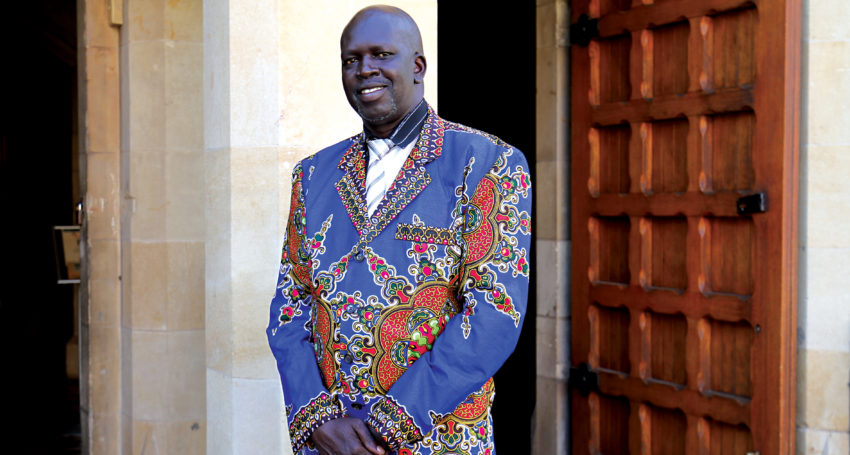
While he calls himself an Aussie now, Mabok has never forgotten his heritage and has been an active member of the Sudanese and African communities over the past two decades.
In fact he was so intent on maintaining his connection with his home country that only one day after arriving in Adelaide as a refugee in August 1998 he helped to establish the Sudanese Community, taking on the role of inaugural secretary and soon after the presidency. It was renamed the South Sudanese Community in 2011, after the country gained its independence.
Advertisement
As Mabok recalled, at the time there were only eight Sudanese families living in Adelaide but with a civil war raging in their home country, it was only a matter of time before many more refugees would arrive. Today, he estimates about 7000 South Sudanese are living in the city, making it the largest African community in Adelaide.
The proud Dinka tribesman also helped establish the African Community Council and was leader of this group until 2020.
Now with more spare time he has turned his attention to “giving back” to the Church and was recently appointed as a member of the Archdiocese’s newly-created Diocesan Pastoral Council.
“My faith is very, very strong,” he explained. When you have a strong faith, trust and commitment, everything will fall into place if you put your trust in God.”
For Mabok, his journey from Sudan to India and finally Australia was tough and his faith was a constant comfort in difficult times.
Growing up in the savanna country of South Sudan, his school ‘classroom’ was out in the open under a tree and from an early age he was a dedicated student, understanding the importance of gaining an education. When the civil war broke out in 1983 he left his family and travelled by himself north to Khartoum seeking to finish his high school studies.
After graduating he was successful in gaining a scholarship to study a science degree at Nagpur University in India and while excited by the prospect, circumstances meant his wife and six-month-old daughter had to remain in Khartoum.
“After I finished my university studies the war intensified in my country and I couldn’t go back,” he said.
“There were 378 South Sudanese in India and we were all stuck and couldn’t go anywhere. It was very hard, especially for me … it was heartbreaking not to be able to go back to Khartoum to my wife and daughter or to South Sudan where my mum and brothers were.”
Mabok joined other leaders from the South Sudanese contingent and met with the United Nations High Commission for Refugees in India to plead their case. Their situation was complicated as they were students who had arrived in the country using their passports.
“We became a very strong community. We really connected and made sure as leaders we brought everyone together – even though we were from 64 different tribes in South Sudan.
Advertisement
“It was a unique kind of community and we still love each other as brothers and sisters because of the difficulty we went through in India.”
Mabok said the support all members of the group received from the Catholic diocese in India at the time was amazing.
Eventually the South Sudanese were given refugee visas and were relocated to Canada, USA, with Mabok being one of 10 selected randomly to go to Australia.
He has never forgotten the warm welcome he received.
“The first thing that struck me as soon as we landed and were received by Immigration… was that a lady came with a smile on her face and I was so surprised,” he recalled.
“I thought ‘wow’ as back where I came from you would only smile at someone you knew. I always tell people one of the best things in Australian culture is that you see someone and you smile at them. I felt so welcomed.”
With good English language skills due to his study in India, Mabok started work experience as a cleaner at the Flinders Medical Centre. He then gained a job as a storeman in the Queen Elizabeth Hospital’s pharmacy store.
Working as a tenancy officer with Anglicare for five years made him “even more happy” as he was helping refugees “and I was experienced in that area”.
Since 2007 Mabok has been employed at Centrelink in a range of capacities including as a customer service officer, multicultural service officer, prison liaison officer and community engagement officer.
In 2000, Mabok married Amer Majok and they are parents to four children. Over the years he has also been able to reconnect with his oldest daughter who now lives with her mother in Colorado.
St Josephine Bakhita is the patron saint of Sudan and victims of slavery. Born in Sudan around 1869, she was taken into slavery and became a Canossian Sister after going to Italy with her owners.
The St Bakhita Mass will be celebrated by Archbishop O’Regan in the Cathedral at 2.30pm on Sunday February 13.



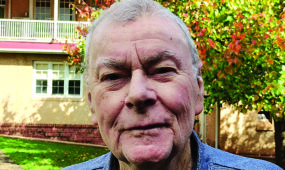
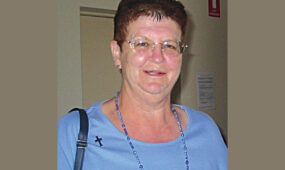
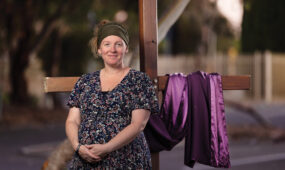
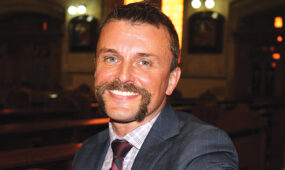

Comments
Show comments Hide comments